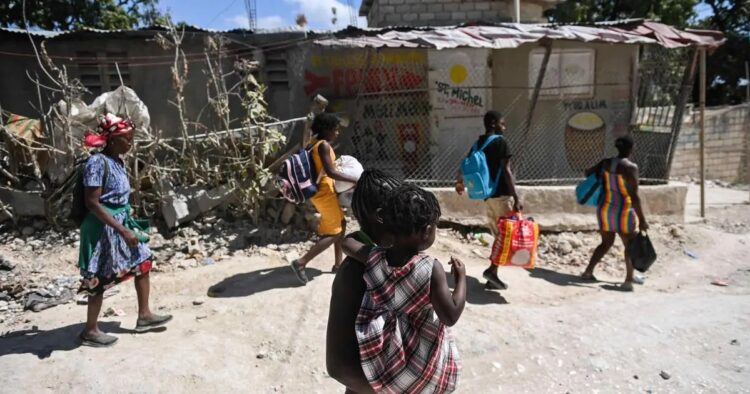In a troubling report released by the United Nations human rights office, Haiti’s struggle against sexual violence and gang warfare has been brought to the forefront. The report highlights the grim reality of sexual violence, which remains severely underreported and largely unpunished in the country. Cases documented include instances of rape and forced sexual relations with gang members, exacerbating the already dire situation of escalating gang violence.
The UN report reveals shocking statistics, indicating that over 1,500 people have fallen victim to gang violence in Haiti this year alone. This figure surpasses the grim toll of 4,451 killings recorded in 2023. The country finds itself teetering on the brink of chaos and anarchy, with heavily armed gangs engaging in violent confrontations with authorities, particularly in the capital city.
Corruption, impunity, and poor governance are cited as key contributors to the erosion of the rule of law in Haiti. These factors, compounded by the escalating levels of gang violence, have brought state institutions perilously close to collapse, according to the report.
The humanitarian crisis has led to the internal displacement of approximately 313,900 people as of December 2023. Furthermore, gangs persist in recruiting children, exploiting them as lookouts for criminal activities such as kidnappings and robberies, as detailed by testimonies collected by the UN Human Rights Office.
UN High Commissioner for Human Rights, Volker Türk, condemned these egregious practices, stressing the urgent need for their cessation. Türk emphasized the imperative of halting the recruitment of children into criminal activities and bringing perpetrators of sexual violence to justice.
The report surfaces amidst political turmoil, with Ariel Henry announcing his resignation as Haiti’s prime minister following pressure from gang leaders. The subsequent establishment of a transitional council aims to restore democratic legitimacy, stability, and dignity to the embattled nation.
Researchers also highlight the rampant trafficking of weapons and ammunition across Haiti’s borders, perpetuating the cycle of violence by providing gangs with superior firepower. Türk called for stricter enforcement of the arms embargo to curb the inflow of weapons.
The Haitian National Police face myriad challenges, including severe underpayment and understaffing, resulting in a glaring deficit in police personnel. Additionally, the rise of “self-defense brigades” has led to extrajudicial executions, exacerbating the breakdown of law and order.
The dysfunctionality of Haiti’s criminal justice system, compounded by widespread corruption, further exacerbates the culture of impunity. Urgent reforms are deemed necessary to restore public trust in state institutions and ensure accountability for human rights violations.
The report also sheds light on the chilling effect of intimidation on journalists, resulting in self-censorship and a climate of fear. Several journalists have been targeted and killed by gangs, with no investigations launched into their deaths, further stifling press freedom.
Moreover, the economic toll of gang violence is evident in the extensive damage inflicted on Haitians’ properties. Homes, businesses, and farm properties have been looted or destroyed, exacerbating the already dire socio-economic conditions in the country.
As Haiti grapples with escalating violence and human rights abuses, concerted efforts from both domestic and international actors are imperative to address the root causes of the crisis and pave the way for a sustainable path towards peace and stability.

















Comments